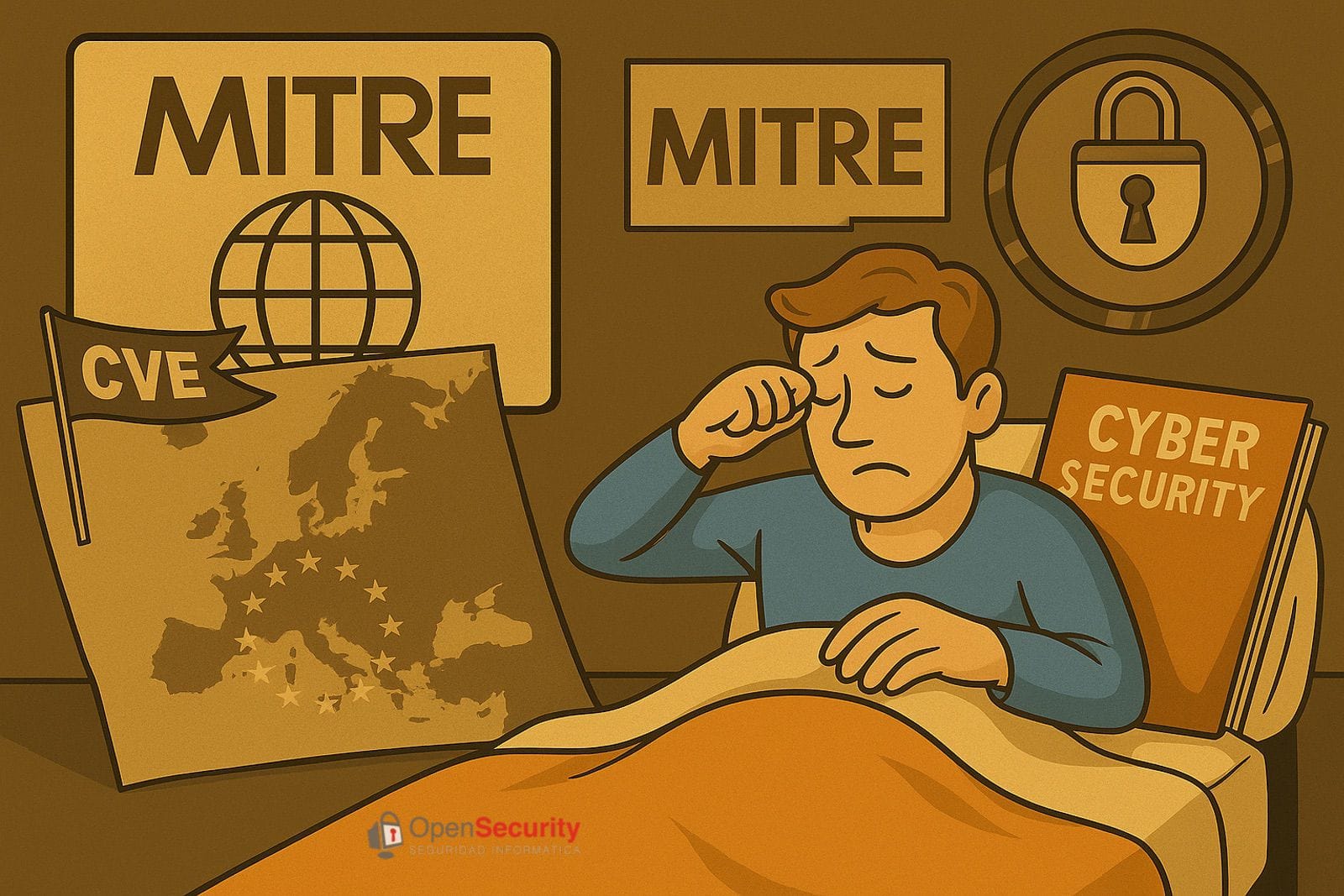Sure, here’s the translation:
The early morning of April 17 brought a temporary relief to the international cybersecurity community: the CISA (Cybersecurity and Infrastructure Security Agency) literally executed at the last moment the contract extension with MITRE to ensure the continuity of the Common Vulnerabilities and Exposures (CVE) program, one of the global pillars in vulnerability management.
However, the situation has raised all alarm bells. The real possibility that the CVE could be interrupted due to lack of funding has highlighted a structural weakness: the entire world depends on a standard maintained under an exclusive contract with a U.S. entity. A resource used by governments, tech companies, CERTs, and security systems around the globe, whose continuity was at risk due to a simple internal political decision.
MITRE, CVE, and the warning of a global disconnection
The warning first came from MITRE: if the contract with the U.S. government was not renewed, the CVE catalog would cease to function on April 17. Reactions were immediate, both on social media and among members of the CVE Board, who announced the birth of an independent alternative: the CVE Foundation, with the intention of continuing the standard from a neutral entity.
A spokesperson from CISA explained that “the contract was extended last night” and that the agency “values the impact of the CVE program on the global cybersecurity community.” The signed extension guarantees 11 more months of operation. But the tension and the precedent are already there.
Europe at the center of the debate over digital sovereignty
This episode has reignited an old debate: Can Europe afford to continue depending on the U.S. for critical issues like digital security?
Despite the fact that the United States is a strategic ally in NATO and a global tech leader, cybersecurity has become a critical area of autonomy for the European Union, on the same level as energy or defense.
Industry professionals have noted that an interruption in access to the CVE would directly affect vulnerability management solutions, scanners, SIEMs, SOCs, and cyberintelligence processes, both in the public and private sectors.
In the words of a cyber defense analyst: “We need a European infrastructure for vulnerability classification. Not because the U.S. is an adversary, but because even its allies change governments and priorities.”
The shadow of cuts in CISA and budget reductions
The controversy coincides with an internal restructuring at CISA, driven by the new administration of Secretary of Homeland Security Kristi Noem. Some contracts have been canceled, and a reduction in personnel and budget in key areas is being considered.
The political backdrop doesn’t help either: over the past few years, conservative sectors have accused CISA of “censorship” in its efforts to combat misinformation during election processes. These tensions have led to an institutional distrust that threatens to further limit the agency’s reach.
What now?
The global technical community has expressed its concern. Although MITRE assures that it remains committed to the CVE and to the CWE (Common Weakness Enumeration), the episode has shown that such a critical resource cannot be tied to a single national jurisdiction.
Europe, which has pushed its own legislation such as the Cyber Resilience Regulation (CRA) and structures like ENISA or the CSIRTs Network, could take the initiative and promote a federated vulnerability management system, interoperable yet sovereign.
This is not about duplicating efforts but about ensuring that, if a political decision in Washington can paralyze the CVE, Europe has a plan B —and that it is within its control.
Conclusion
Cybersecurity is no longer just a technical issue: it is geopolitics. The MITRE-CVE episode has served as a reminder that even the most established standards can be fragile when they depend on the will of a single actor.
European digital sovereignty must cease to be an aspiration and become a concrete strategy. Because the next time a contract is not renewed on time, the damage could be immediate and global.
More information:
🔗 Full article on NextGov and Security news

